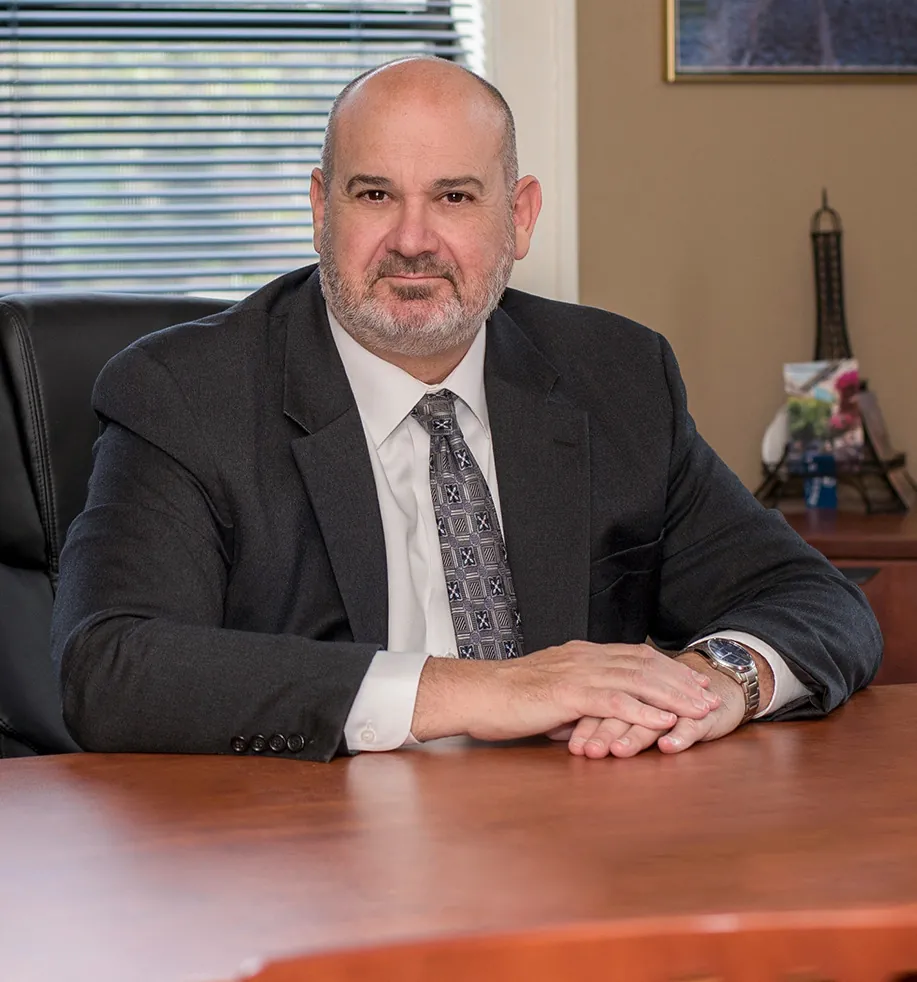A sex offender registry is a public registry containing personal information for individuals convicted of various sex crimes. Every state has a sex offender registry, and the databases are pooled into a national database maintained by the FBI. The Florida Department of Law Enforcement (FDLE) maintains a database for both sexual predators and sexual offenders. As this information is public, anyone can visit the FDLE website and search for convicted sex offenders or predators.
Florida Sex Offender Registration Attorney
The best way to fight against a failure to register or violation of sex offender probation charge is to hire an aggressive Florida sex offender registration attorney. Galigani Law Firm has over 30 collective years of experience we can apply to your case. With our in-depth background on sex crimes, our legal team at Galigani Law Firm can formulate a strong defense and obtain a reduction or dismissal of charges.
Galigani Law Firm represents clients accused of federal crimes in Alachua County, Columbia County, Gilchrist County, Levy County, and Marion County. Call (352) 375-0812 to schedule a free consultation with Galigani Law Firm today.
Information Center
- What Is The Difference Between A Sexual Offender And A Sexual Predator?
- What Is Required For Registration?
- How Long Must An Offender Be Registered?
- What If An Offender Does Not Register?
- Additional Resources
What Is The Difference Between A Sexual Offender And A Sexual Predator?
A sexual offender is an individual who has been convicted of a qualifying sex crime under Florida law or an individual convicted of a sex crime in another jurisdiction who has come to Florida. There is a rather expansive list of qualifying sex crimes; over 20 offenses require the convicted defendant to register as a sex offender upon conviction. Some common crimes that require registration are listed below:
- Sexual Misconduct – F.S. §§ 135(2), 394.4593(2), 916.1075(2), 985.701(1)
- Engaging in sexual conduct with individuals protected by the law, such as minors or disabled adults, varies in severity and punishment.
- Child Pornography – F.S. § 071
- Distributing or possessing child pornography is a crime of the second degree.
- Kidnapping a Minor – F.S. § 01
- Kidnapping a minor under 13 is a first-degree or life felony.
- Human Trafficking – F.S. § 06(3)(b)
- Human trafficking varies in severity and punishment but typically constitutes abducting, selling, or forcing a person to conduct sex work while maintaining control over them.
- Sexual Battery – F.S. § 011
- Sexual battery typically consists of nonconsensual sexual touching or penetration, and the severities and punishments vary depending on the conduct.
- Lewd or Lascivious Offenses Involving a Minor – F.S. § 04
- This involves sexual acts committed upon or in the presence of minors under 16. Punishments and severities range.
- Video Voyeurism of a Minor – F.S. § 145
- This crime typically consists of secretly recording someone naked while unaware. Severities and punishments vary for different circumstances.
Being deemed a sexual predator is the next step after being a sexual offender. Typically, sexual predators are sexual offenders who have been convicted of more severe or multiple sexual offenses. Rather than being convicted of a sex crime, sexual predators are typically either convicted of one or more first-degree sexual offenses or convicted of two or more second-degree sexual offenses. For clarity, first-degree offenses are some of Florida’s most serious crimes; crimes of the second degree follow first-degree offenses.
Both sexual offenders and sexual predators are often considered dangerous to society, but sexual predators are typically considered “high-risk” for reoffending. Designation as a sexual predator must come from a written order by the court after conviction.
What Is Required For Registration?
Registration on the sex offender registry requires the convicted individual to contact their local sheriff’s office and provide a hefty amount of information. This information likely will include the following:
- Name
- Date of birth
- Social security number
- Address
- Physical characteristics, including: height, weight, race, eye color, etc.
- Fingerprints
- Photograph(s)
- Permanent or temporary residence
- Vehicle registrations
- Passport/Drivers license information
- Phone numbers and email addresses
- Occupation
Select information from above then becomes public record, and anyone can access the information in the FDLE database through means of a search. Registered offenders must also complete a new registration with their county sheriff’s office between two and four times a year. Sexual predators must register four times a year.
In some cases, registered offenders will not be allowed within 1,000 feet of schools, parks, playgrounds, and daycare facilities, under Florida Statutes § 775.215.
How Long Must An Offender Be Registered?
In Florida, a sexual offender placed on the registry is typically kept on the registry for life. Those offenders living in Florida must continue to make the periodic check-ins with their local sheriff’s station. In addition, there are very few removal methods once an individual has been entered into the registry. Below are the very few instances in which an offender can be removed from the registry:
- Pardoned by The State of Florida: Individuals can be removed from the registry if they are pardoned by The State of Florida or the governor. Essentially, their conviction is negated as a result of their pardon. Cases involving pardons are few and far between.
- Petition After 25 Years: After 25 years with no new misdemeanor or felony arrests or convictions, an offender can petition the court to remove their information from the sex offender registry. The court has discretion in whether or not it grants the petition. Additionally, this often does not lift all the strict requirements imposed on offenders.
- “Romeo & Juliet” Exception: Florida Statutes § 943.04354 provides that offenders who are not more than four years older than a victim who is between 13 and 17 and who were engaged in a consensual sexual relationship may request that the court relieve them of having to register as an offender. Violent offenders or offenders not considered in the age range above will likely not be considered for the exception.
These removal methods from the registry are very narrow and often not applicable to most cases. This is why registration is a severe consequence of a sex crime conviction.
What If An Offender Does Not Register?
Even when traveling or working away from home, failure to follow registration requirements can have very serious consequences for registered offenders.
Offenders will face criminal penalties for missing the registration periods with their local sheriff’s office. Failing to register at any point is typically considered a third-degree felony, which is punishable by up to five years in prison. Under more serious circumstances, failure to register can constitute a second-degree felony and result in up to 15 years in prison.
In addition to being a crime in Florida, failing to register is also a federal crime. 18 U.S.C. § 2250 makes it possible for state-convicted offenders to be prosecuted under federal law for failure to register. This means that failing to register properly can result in both state and federal punishment. Those who fail to follow registration requirements in their state may face up to 10 years in prison for a federal crime.
It is worth noting that any offenders from different states who establish temporary residences in Florida are subject to Florida’s offender registration regulations and requirements. The requirements are strict, and violation warrants punishment for failure to register.
Additional Resources
Sex Offender and Predator Search Frequently Asked Questions | Florida Department of Law Enforcement – This resource answers many frequently asked questions about sexual offenders, registration, and what is required. The resource is beneficial to gain an understanding of what exactly is required for registration.
Sex Offender Resources | Florida State Sex Offender One Stop Resource For Registered Citizens – This resource contains valuable information for registered offenders, including resources for finding housing, employment, and treatment/therapy.
Gainesville Sex Offender Registration Lawyer | Alachua County, FL
If you are convicted of certain types of sex crimes in Florida, you will be required to register as a sex offender for the rest of your life. If you violate or fail to register, the consequences will be significant unless you can mitigate the reasons why. To retain experienced legal representation, contact Galigani Law Firm today. Attorney Dean Galigani can discuss how he will craft an effective defense strategy for your case.
Galigani Law Firm accepts clients throughout the Gainesville and University of Florida area and nearby cities including Alachua, Hawthorne, Archer, Waldo, Newberry, and High Springs. Call (352) 375-0812 to arrange a free consultation today.







